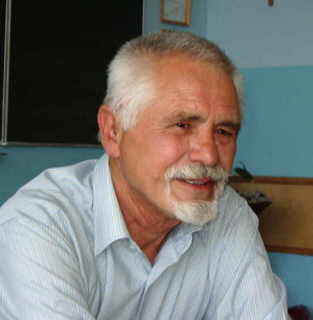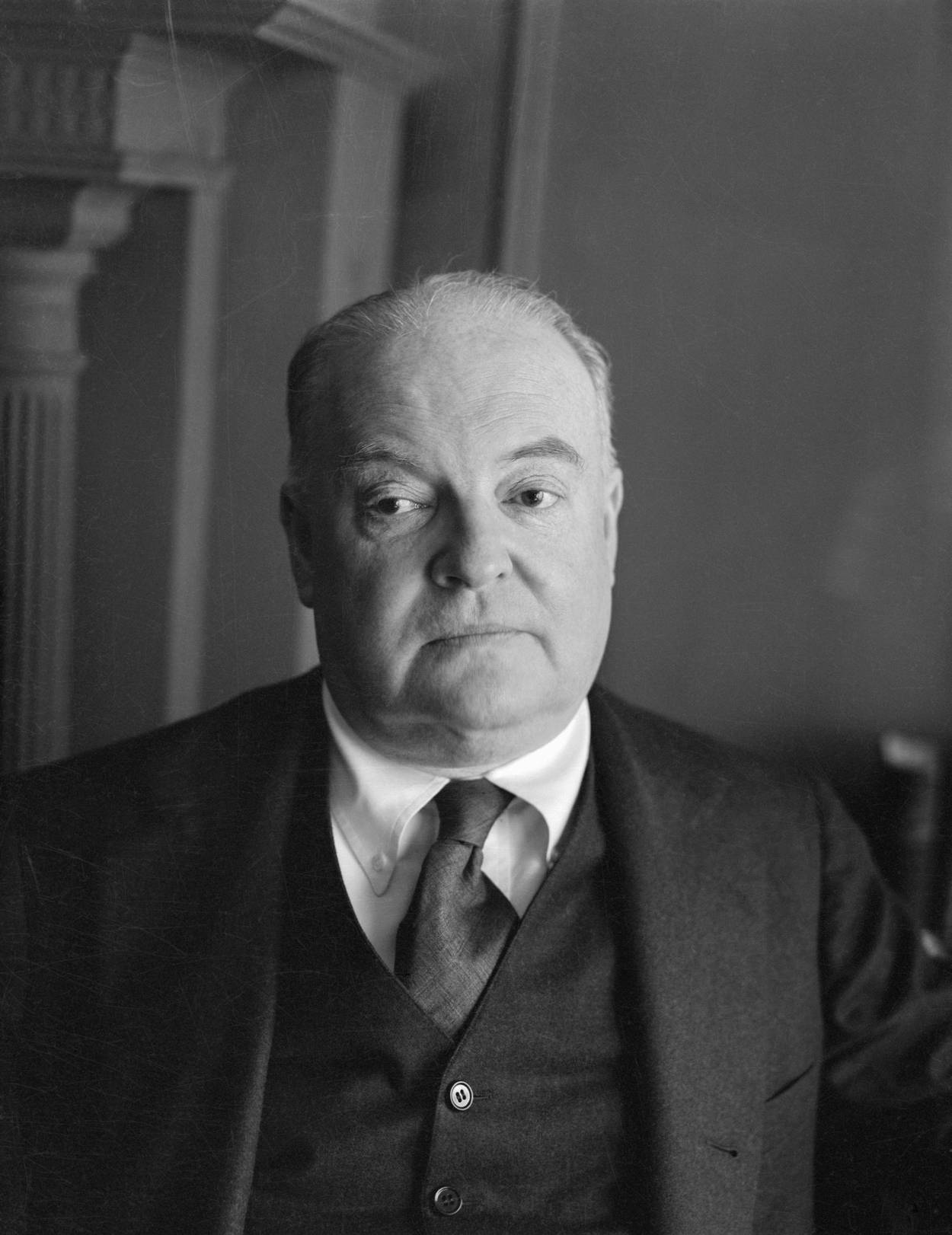
Andrzej Koraszewski
Mój poprzedni artykuł wywołał sporo reakcji. Pisałem w nim m. in., iż prawdopodobnie kluczowym zadaniem Ministerstwa Edukacji Narodowej jest zmiana polityki kadrowej, doboru i formuły, w jakiej działają dyrektorzy szkół. Dyrektor szkoły jest odpowiednikiem dowódcy oddziału na linii frontu, to on/ona musi mieć możliwość podejmowania decyzji o dostosowaniu nauczania do potrzeb w konkretnym środowisku, to dyrektor dobiera kadrę nauczycielską i tworzy warunki pracy, które albo sprzyjają faktycznemu nauczaniu, albo zmieniają to miejsce w piekło dla nauczycieli i uczniów.
Wśród osób, które zareagowały na mój tekst był Tomasz Dominik Zbierski, historyk i człowiek, który przez ćwierć wieku był dyrektorem jednego z najlepszych liceów w Gdańsku (osławionej szóstki). Przedstawiam tu jego wpis pod zapowiedzią tego artykułu na moim Facebooku:
„Problemy w systemie obowiązkowego przebywania dzieci w budynkach nazywanych szkołami w Polsce wynikają z niekompetencji wszystkich formacji politycznych rządzących po 1989 roku.
Ustrój i podstawy prawne tego systemu zakładają dominację polityków w ustalaniu wszystkich najdrobniejszych spraw, które w ich mniemaniu są istotne w codziennym funkcjonowaniu szkół.
Po 1989 roku, po bezwzględnym spacyfikowaniu strajku nauczycieli w 1993 roku uznano, że szkoły mają przede wszystkim jak najtaniej przechować nieletnich na czas nieobecności ich rodziców w domu.
Przez 3 dekady nastąpił gigantyczny odpływ najlepszych nauczycieli z zawodu. Wyższe studia pedagogiczne były coraz niższej jakości i nie cieszą się obecnie praktycznie żadnym zainteresowaniem najlepszych absolwentów szkół średnich.
Zarządzanie systemem jest oparte o anachroniczne, państwowe i polityczne struktury rodem z carskiej Rosji – tzw. Kuratoria Oświaty.
Postępująca katastrofa przyspieszyła w momencie wmontowania w niedofinansowany, z kiepskim kapitałem ludzkim, system egzaminów zewnętrznych.
Dzisiaj w praktyce organizacji nauczania w każdej szkole, które stały się ośrodkami tresury do zdawania egzaminów, są jedynie bardzo złe wymagania egzaminacyjne, nieustannie zmieniane przez niekompetentną Centralną Komisję Egzaminacyjną.
Nowa pani minister zmieniła natychmiast wszystkich kuratorów oświaty. Nie zmieniła kierownictwa CKE. W dodatku oświadczyła, że to CKE będzie opracowywała redukcje o 20% podstaw programowych. Wróży to jedynie dalszą dewastację systemu.
Żadne podwyżki płac (nadal niskie) nie zmienią niczego. 30 lat negatywnej selekcji do zawodu nauczycielskiego jest już nie do odrobienia.
Brak woli likwidacji rosyjskiego systemu zarządzania, a nawet likwidacji ministerstwa i rzeczywistego odcięcia polityków od wpływu na szkoły daje pewność, że w Polsce niemożliwe jest zbudowanie nowoczesnego systemu edukacji.
Żadnych złudzeń.”
Zareagowałem na ten niezwykle pesymistyczny obraz stwierdzeniem, że mamy tu również koszmarny wpływ zachodniej lewicowej pedagogiki, że pewne fatalne trendy, które dziś obserwuję w Polsce, były zauważalne w Szwecji już pół wieku temu. Tomasz Zbierski zgodził się z tym twierdzeniem, dorzucając jeszcze link do wypowiedzi Weroniki Jagielińskiej, która zaczyna swoją obszerną opinię tak: „Wymyślanie polskiej szkoły na nowo, czyli o fajnie brzmiących pomysłach na edukację, które mogą mieć bardzo niefajne konsekwencje” a kończy słowami:
„Za powyższym idzie kompletna zmiana oczekiwań, co do funkcji szkoły, podsycana w Polsce jeszcze polaryzacją polityczną, w wyniku której publiczna szkoła została wykreowana na najgorszego wroga, miejsce przemocy i indoktrynacji, a nauczyciele, z zasady, na roszczeniowych obiboków, wyżywających się na dzieciach. Szkoła, żeby uczyć, musi wymagać, a to w obecnym podejściu przemoc i dyskryminacja. Nauczyciel musi mieć jakiś autorytet i budzić zaufanie, żeby rodzic przy każdej negatywnej ocenie nie krzyczał o wielkiej niesprawiedliwości w stosunku do jego wyjątkowego dziecka. Dzisiaj znacznie częściej niż o funkcji nauczania, mówi się o „miejscu, w którym wszyscy będą czuli się dobrze”, także wydaje się, że dotychczasowa umowa społeczna w tej kwestii, już nie obowiązuje, ze wszystkimi tego konsekwencjami.”
Odmawiam potępienia w czambuł całej kadry nauczycielskiej, W szkołach nadal jest dużo nauczycieli z powołania, próbujących uczyć wbrew wszystkiemu. Wśród moich młodszych i starszych przyjaciół jest wielu nauczycieli, którzy psioczą, ale trwają. Co więcej, zaczynałem swoją naukę zaraz po wojnie, w najgorszych stalinowskich czasach, kiedy dyrektorami szkół zostawali zaufani towarzysze, a nauczyciele przekazywali wiedzę zakazaną ukradkiem. Mój prywatny test nie jest idealny, ale obserwacja głównego korytarza dowolnej szkoły podczas dużej przerwy pozwala wypatrzeć tych nauczycieli, których nic nie złamało. (Zawsze trudniej im dojść do tych drzwi, do których zmierzają, bo dzieciaki ciągle mają do nich interesy, podczas gdy inni nauczyciele płyną korytarzem jak lodołamacz.)
Dramatyczny obraz systemu szkolnego nie jest typowo polski. Przeciwnie jedziemy w samym środku rozciągniętego peletonu. Podobne głosy możemy usłyszeć z Niemiec, z Wielkiej Brytanii, z Szwecji czy USA. W eseju czarnego amerykańskiego ekonomisty Thomasa Sowella o edukacji dzieci z mniejszości autor pisze:
„Największą tajemnicą jest to, że tajemnic nie ma, chyba że tajemnicą jest praca. Praca wydaje się być jedynym słowem, którego nie można dziś używać publicznie.
Oprócz pracy i dyscypliny różne odnoszące sukcesy szkoły dla dzieci z mniejszości miały ze sobą niewiele wspólnego, a jeszcze mniej z modnymi w naszych czasach teoriami edukacyjnymi.”
Autor opisuje historię szkoły dla Czarnych, której pierwszą dyrektorką była pierwsza czarna kobieta, która zdobyła dyplom na wyższej uczelni w USA.
Mary Jane Patterson ukończyła Oberlin College w 1862 r. Jak pisze Sowell, w tamtym czasie Oberlin miał inne wymagania dotyczące programu nauczania dla kobiet i mężczyzn. Łacina, greka i matematyka były wymagane na „kursie dla panów”. Panna Patterson nalegała, by pozwolono jej uczyć się łaciny, greki i matematyki.
„Kiedy później była dyrektorką czarnej szkoły średniej w Waszyngtonie, była znana z „silnej, zdecydowanej osobowości”, „solidności” i bycia „niestrudzoną pracownicą”. To, jaki charakter kształtował standardy i tradycje szkoły w pierwszych latach jej istnienia, niewątpliwie miało wpływ na jej późniejsze sukcesy.”
Kierowana przez nią szkoła miała niepozorną nazwę M Street School, (po 1916 roku przemianowano ją na Dunbar High School) i miała lepsze wyniki od wielu szkół prywatnych. Szkoła była niedofinansowana, normą było 40 uczniów w klasie, popękane tablice, jadalnia tak ciasna, że część uczniów jadła na ulicy.
„W przeszłości – pisze Sowell – wielu nauczycieli Dunbar kontynuowało nauczanie przez całe lata po tym, jak uzyskali prawo do przejścia na emeryturę, ponieważ było to niezwykle satysfakcjonujące doświadczenie. Teraz, gdy do szkoły napływali niedostatecznie wykształceni, niewystarczająco zmotywowani i destrukcyjni uczniowie, nauczyciele zaczęli odchodzić na emeryturę, niektórzy już w wieku 55 lat. W ciągu zaledwie kilku lat po rejonizacji Dunbar stała się kolejną upadającą szkołą w getcie, z wszystkimi problemami, jakie mają takie szkoły w całym kraju. Osiemdziesiąt pięć lat osiągnięć po prostu rozpłynęło się w powietrzu.” (A równocześnie nauczyciele nigdy nie mieli takich wysokich zarobków, a szkoła takich luksusów).
Zdemoralizowano uczniów, zdemoralizowano rodziców, zdemoralizowano nauczycieli. Sowell pisze, że polityka edukacyjna pcha do porażki.
„Krótko mówiąc, porażka przyciąga więcej pieniędzy niż sukces. Z politycznego punktu widzenia porażka staje się okazją do żądania większych pieniędzy, mniejszych klas i bardziej modnych kursów i programów, począwszy od „czarnego angielskiego” po dwujęzyczność i „poczucie własnej wartości”. Politycy, którzy chcą wyglądać na współczujących i zaniepokojonych, wiedzą, że głosowanie za pieniędzmi na takie projekty realizuje ich cel, a głosowanie przeciwko takim programom wiąże się z ryzykiem oskarżenia o złośliwość, jeśli nie o rasizm.”
Modna lewicowa polityka edukacyjna jest zabójcza dla wszystkich, ale szczególnie dla dzieci, które mają najgorsze warunki startu. W Wielkiej Brytanii mamy właśnie dramat, który może zakończyć karierę dyrektorki najlepszej szkoły średniej w kraju. Jak donosi londyński „Telegraph”:
„Michaela, szkoła założona przez Katharine Birbalsingh, jest znienawidzona przez wielu lewicowców, którzy gardzą jej metodami i są oburzeni jej sukcesem. Jednak wiadomość, że uczeń pozywa szkołę w związku z ograniczeniami w modlitwie rytualnej, zaszokowała wielu na prawicy. “Jak to mogło się stać?” – pytają z naiwnością, w którą trudno uwierzyć.”
Zacznijmy od krótkiej prezentacji Katharine Birbalsingh. Córka naukowca z Gujany, urodzona w Nowej Zelandii w 1973 roku. Dorastała w Kanadzie, studiowała w Oxfordzie romanistykę i filozofię. Po studiach zaczęła uczyć w londyńskiej szkole. Głośno zrobiło się o niej po raz pierwszy na konferencji Partii Konserwatywnej w październiku 2010 roku, gdzie wystąpiła z ostrą krytyką brytyjskiego systemu edukacyjnego. Mówiła o kulturze wymówek, niskich oczekiwań, morzu biurokracji i chaosie w klasach szkolnych.
„Moje doświadczenie w nauczaniu przez ponad dekadę pracy w pięciu różnych szkołach utwierdziło mnie w niezachwianym przekonaniu, że system jest zepsuty, ponieważ utrzymuje biedne dzieci w biedzie.”
Po tym jej wystąpieniu została zawieszona, a następnie zrezygnowała z pracy, ponieważ postawiono jej warunki, których nie była w stanie zaakceptować. W 2014 staje na czele Michaela Community School, szkoły, która ma być modelem wielokulturowości.
Jak dotąd ta wielokulturowość natrafia w Wielkiej Brytanii (podobnie jak we Francji czy w Niemczech) na poważne trudności. Obserwujemy tendencję do samosegregacji etnicznej, religijnej i rasowej, nieustanne uleganie presji grup najbardziej agresywnych, czyli terrorowi mniejszości.
Szkoła kierowana przez Katharinę Birbalsingh oparta jest na założeniu, że różnorodność wymaga wyrzeczeń od wszystkich. Jedzenie wegetariańskie, żeby wszyscy jedli to samo, żadnych symboli religijnych, szkoła jest świątynią nauki.
Jak pisze „Telegraph” Michaeli jest szkołą stworzoną na wzór Singapuru, obowiązuje bezwzględny wymóg sprawiedliwości i surowa dyscyplina. Wszyscy uczniowie są traktowani równo, nie ma żadnych wyjątków.
Birbalsingh mówi uczniom: „Nasza szkoła musi być miejscem, gdzie dzieci wszystkich ras i religii kupują coś, co je łączy i co jest większe od nas: nasz kraj”.
W tej szkole połowa uczniów to muzułmanie. Większość odnajduje się w rygorach wspólnoty, jednak grupa około 30 uczniów zaczęła organizować rytualne modlitwy na szkolnym podwórzu. Stanowcza reakcja kierownictwa szkoły wywołała reakcję łańcuchową, pojawiła się przemoc i zastraszanie nauczycieli, groźby śmierci i podkładania bomb. Obecnie jeden z uczniów zaskarżył szkołę w sądzie, twierdząc, że zakaz modlitw jest dyskryminujący i powoduje poczucie wykluczenia. W chwili, kiedy to piszę, nie ma jeszcze wyroku, ale sprawa poruszyła brytyjską opinię publiczną, gdyż wyciąga na światło dzienne drażliwy problem modelu oświaty. Czy szkoła ma być przechowalnią młodych osobników naszego gatunku w godzinach pracy ich rodziców, czy społecznością przygotowującą do dorosłego życia?
Nasze polskie dylematy z oświatą są częścią procesów, które obserwujemy w wielu miejscach na świecie. Barbara Nowacka od pierwszej chwili zapowiadała redukcję godzin przeznaczonych na nauczanie religii. Podobnie jak z kwestią prac domowych jest to problem cząstkowy, który z pewnością wywoła spory i konflikty, ale nie będzie nawet początkiem czyszczenia stajni Augiasza.
Czy Tomasz Dominik Zbierski ma rację sugerując, że sprawa jest beznadziejna? Nie stać nas na poczucie beznadziei. Czy jest szansa na oddanie szkół dyrektorom z prawdziwego zdarzenia? O tym marzył już autor naszego hymnu narodowego. Trzeba spróbować raz jeszcze.
Andrzej Koraszewski
Publicysta i pisarz ekonomiczno-społeczny. – Ur. 26 marca 1940 w Szymbarku, były dziennikarz BBC, wiceszef polskiej sekcji BBC, i publicysta paryskiej
 Fot. Dawid Żuchowicz / Agencja Wyborcza.pl
Fot. Dawid Żuchowicz / Agencja Wyborcza.pl Obchody 81. rocznicy wybuchu powstania w getcie warszawskim. Incydent podczas uroczystości
Obchody 81. rocznicy wybuchu powstania w getcie warszawskim. Incydent podczas uroczystości











